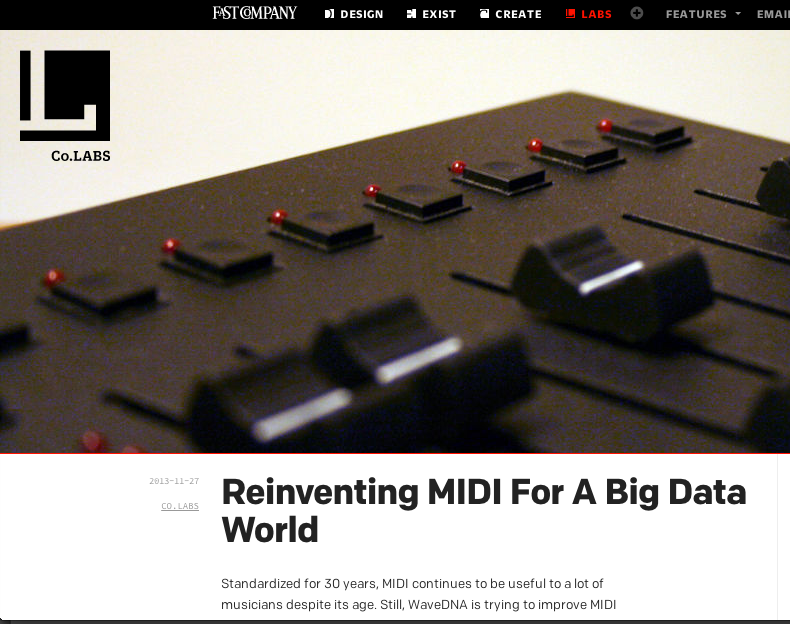
Tyler Hayes – Reinventing MIDI For A Big Data World
Tyler Hayes Article: Standardized for 30 years, MIDI continues to be useful to a lot of musicians despite its age. Still, WaveDNA is trying to improve MIDI and give it a new outlook on life.
Like a lot of older technologies past their prime, MIDI was widely implemented and so it remains key for a lot of musicians–even some 30 years later. With an older standard comes the headaches of modernism, however, and because MIDI is a simple and linear technology it needs to be dragged into the future.
Instead of giving up on MIDI, WaveDNA, a music software company, is trying to improve on the past and make the standard more useful.
“Our system applies a non-linear structure to each bar of a MIDI music file that provides weightings for each of the possible note locations,” says WaveDNA lead researcher Glen Kappel. “This accounts for the different colors and shadings in our visualization.”
There are a few different impacts improving MIDI could have on the music industry, but the most obvious is the ability to manipulate MIDI tracks in new ways for faster workflows.
“Intelligent editing functions allows users to shift and change multiple events of a particular type within an arrangement all at once,” says Kappel. “This can also be mapped to various external controllers including early eye-tracking interfaces, as well as tablets, or music-specific hardware controllers.”
WaveDNA’s practical application of this process is its beat creation software, Liquid Rhythm, which uses this new visualization. “Building a software drum-machine provides the first minimal footprint for our system” says lead developer at WaveDNA, Adil Sardar. “It highlights our non-linear approach along the horizontal or metric axis as an introduction to our process.”
Liquid Rhythm isn’t an end game for WaveDNA, it’s just the first step, a trojan horse type of approach to rethinking MIDI and helping to bring others along. The company was looking to make sure it had traction with the complex ideas it was putting forth and so it has been taking incremental steps toward more ambitious goals.
Beyond composition, the company is looking at things like game applications, education, and even opening a set of analysis tools open to academic research. But, according to Sardar, the deepest possibility from their perspective would be something called Intelligent bookkeeping. “With our way of parsing MIDI, we can sort, order, and search musical ideas based on structural features of the actual music, rather than just by way of tags describing those features.
This could be of great value either for individual musicians to organize and access their own ideas and previous work, or as way for content aggregators like professional MIDI sites to sort their material in ways that could suggest ‘similar’ songs, or generality allow for more meaningful searches and comparisons.”
The the full article here by Tyler Hayes.

Written By: Tyler Hayes

Comments are closed